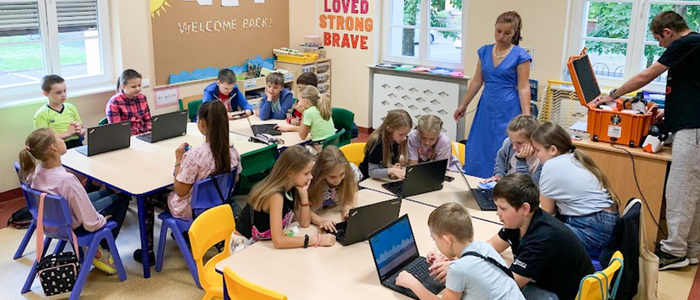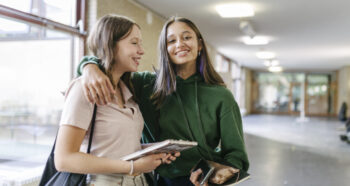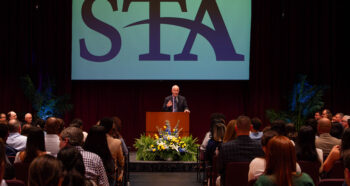SAIL International, a Cambridge school in Poland, came together in the summer to ensure learning continues for children escaping the Ukrainian war. The President of the Management Board at the school, Michael Glueck, speaks to Cambridge International about supporting the students during a time of crisis and upholding the values of being a Cambridge school.
Haddy: Your school established a support and integration programme aimed at Ukrainian children that have been displaced by the war. Through the programme, you offer various forms of assistance and care to the children, educational and otherwise. Can you please tell us about that?
Michael: A few days after the first war refugees arrived, our school established a daily integration programme of arts and music workshops for Ukrainian refugee children. We employed Ukrainian teachers, established contacts with Ukrainian and Russian-speaking psychologists, and set up daily arts and music workshops in the afternoons.
The first aim was to establish a safe place, where refugee children could just be children and for a few hours, forget about the war and the families they had left behind. They needed to play, interact with each other, and actively learn in an encouraging environment in their language, just as they did in their home country. Secondly, we had a pedagogue and psychologist observe the children for potential war trauma, to arrange professional help.
We wanted to give the children an unforgettable aim to work towards: they could participate in our charity concerts with the Academy of Arts, and the charity child opera with Ukrainian opera singers and orchestra at the Castle Opera. Instead of just receiving help, they would feel the responsibility and pride that comes from helping others.
We used the funds gained from the charity events to establish a summer school (from 11th-29th July 2022) for Ukrainian children in our city and secured the continuation of the Integration Programme with additional language education in Polish and Ukrainian until the end of 2022. We received very generous donations, especially from the Polish Odd Fellows and Rotarians.
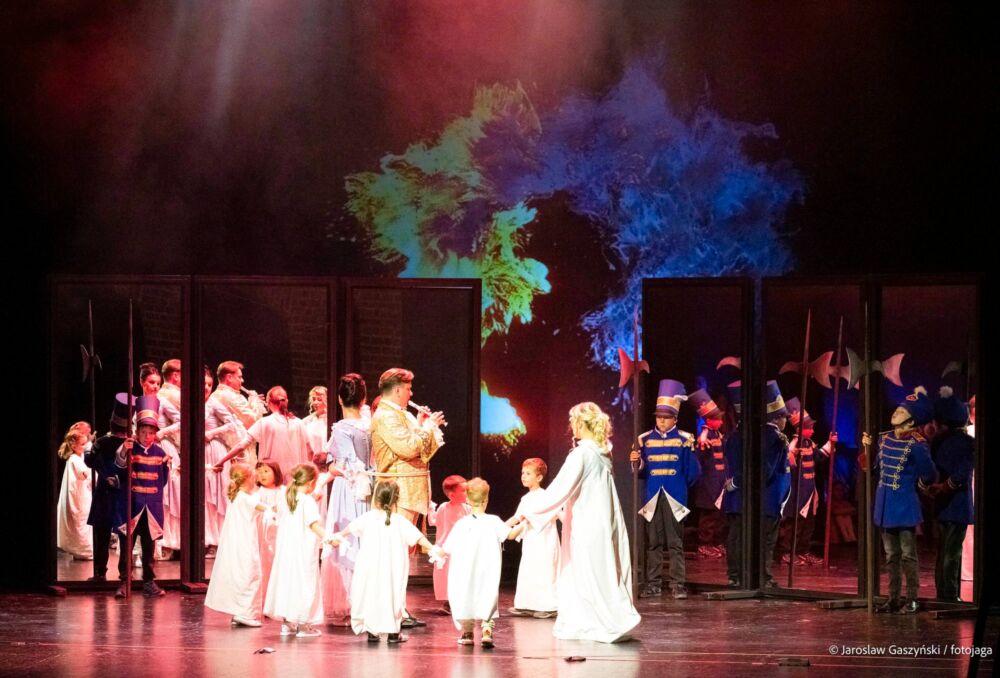
Haddy: How have the children found living and learning in a new country, school, and surroundings they are not familiar with?
Michael: I would divide the learning and development into three phases:
Until the summer, (July 2022) everything was provisional for the refugees. Most of the mothers with children had not yet decided to stay in our city for a longer period.
The second phase was during the summer. The mothers who decided to stay with their children needed to establish their work and residential environment. They also needed a meaningful daytime activity for their children during the two months of school vacation.
After the summer, we spoke to the mothers to find out their current needs. Many refugee children were still enrolled in the online programme of their Ukrainian school and needed tutoring in Ukrainian reading, writing, and maths for the final exams at primary school. At Polish schools, insufficient knowledge of the Polish language was a major obstacle to following the educational programme.
While younger children have made new friendships, there is still a strong emotional impact of the war, when they listen to the news or phone their fathers and families back in Ukraine. After the isolation period during the pandemic and the refugee experience, many children have become very sensitive and shy. A safe space with the possibility of playing, but also learning Polish and tutoring in the Ukrainian language has become more popular than ever.
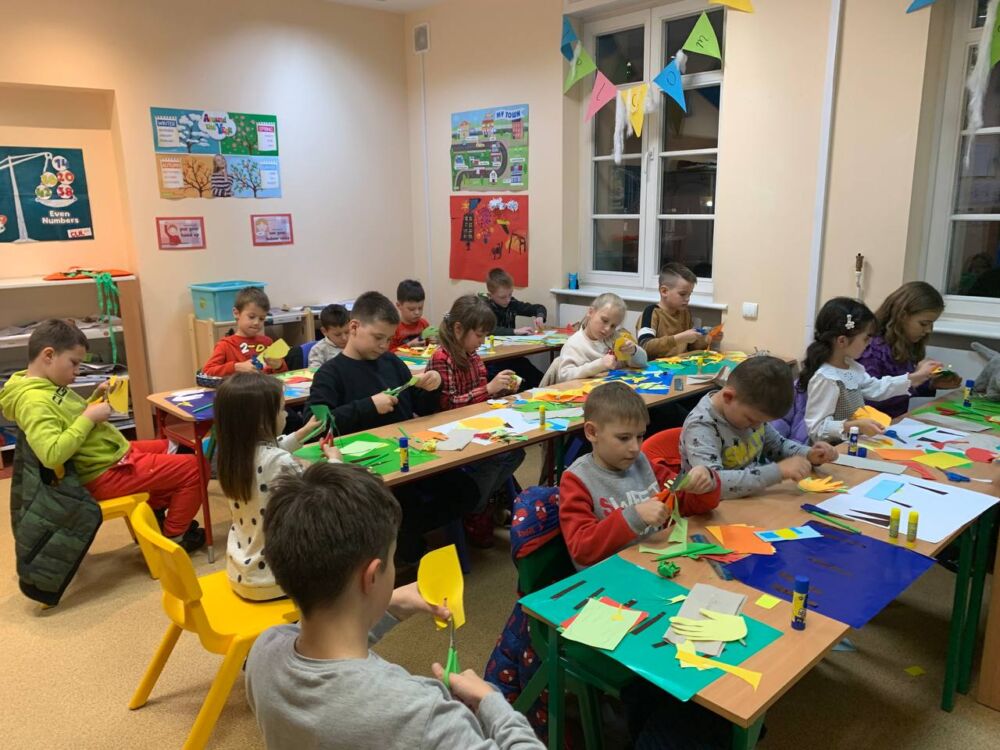
Haddy: How many students from Ukraine has your school supported as part of this programme?
Michael: About 50 children in total participated in the arts and music workshops. However, there was a high fluctuation, because the refugees often changed their place of stay or suddenly returned to Ukraine.
There were 40 participants in two age groups in our summer school, including some Ukrainian teenagers as volunteers. About 200 children and teenagers enrolled in our adapted integration programme after the summer vacation. Most of them enjoyed the art workshops. We have one group for tutoring in the Ukrainian language and an increasing number of Polish language courses for different age groups and levels. For the first time, mothers and other adults can also participate.
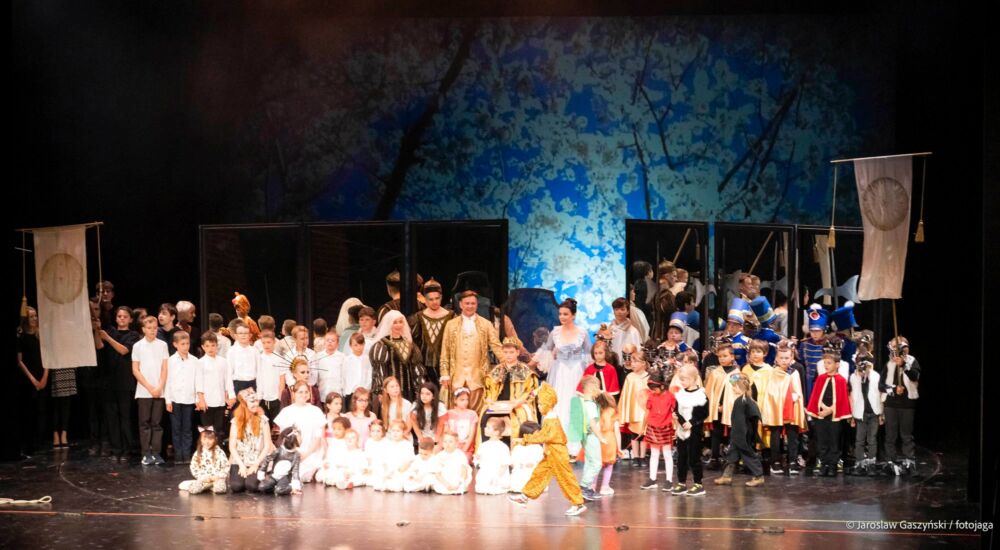
Haddy: What was the reaction from the children already in your school?
Michael: From the outbreak of the war, there has been overwhelming support from students and parents, teachers, and external supporters. Like many others, our school is full of Ukrainian flags and messages of solidarity from students of all ages. To serve the sudden need of the first wave of refugees arriving in our town, parents and students collected a huge amount of clothes and sanitary products for children. Many students prepared food and delivered it to the railway station for arriving refugees. Together with artists from the Academy of Arts and the Opera, the school created wonderful events leading to a significant charitable impact.
A great educational by-effect is, that our students have started to create and conduct charity events on their own. They have learned that – no matter how young they are – their engagement can make a difference.
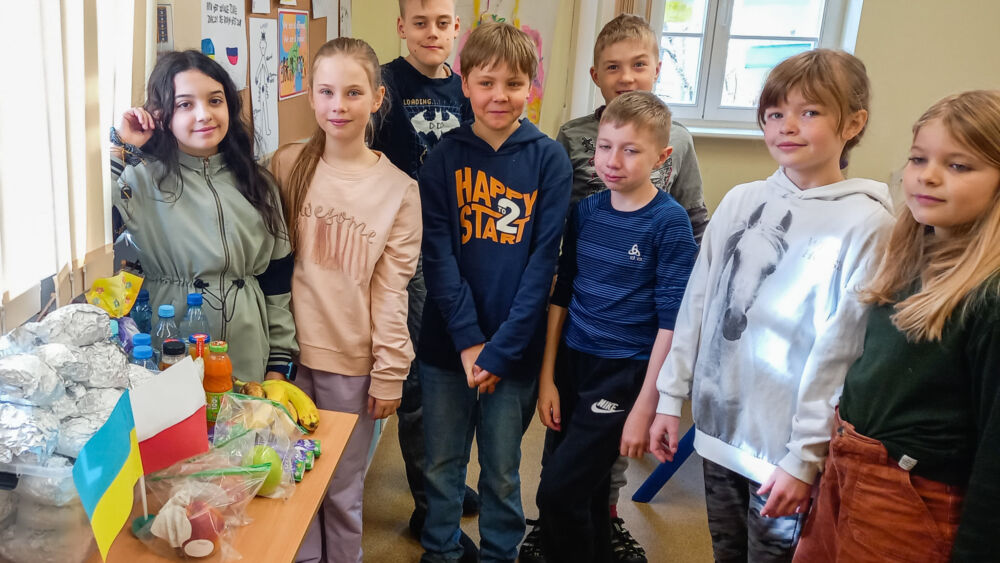
Haddy: It’s such a noble thing to do and of course, while it’s important for the children to continue learning, it’s just as important that they continue to play, have fun and not lose their social interaction skills. Do you have any examples of those you can share with us?
Michael: For me, it was very touching when the summer school ended. In addition to group integrating activities at school – such as creating a fairy-tale fashion show, making meals together, conducting sports tournaments, and performing Ukrainian songs for a film – the children visited a special place in their temporary home every day: museums, cinemas, beautiful parks, or an ice cream parlour.
On the last day, everyone shed tears: children, parents, teachers, organisers, and even the teenagers who volunteered to be assistants. They all grew together as a wonderful summer school family and in those moments, were able to forget the horrific events that drove them away from their homes, and into our school.


